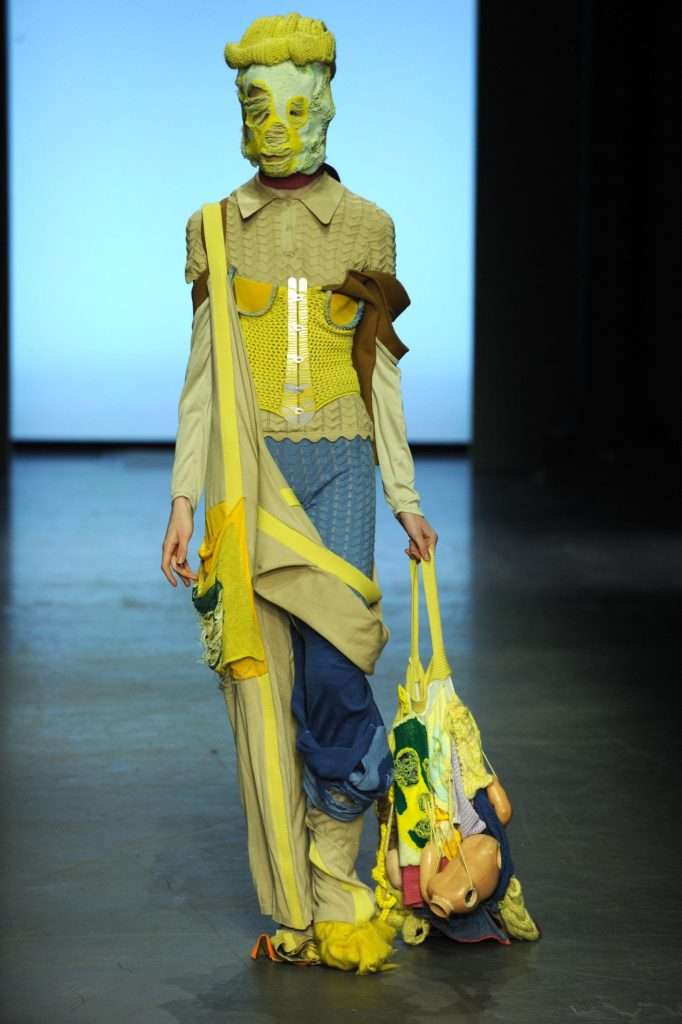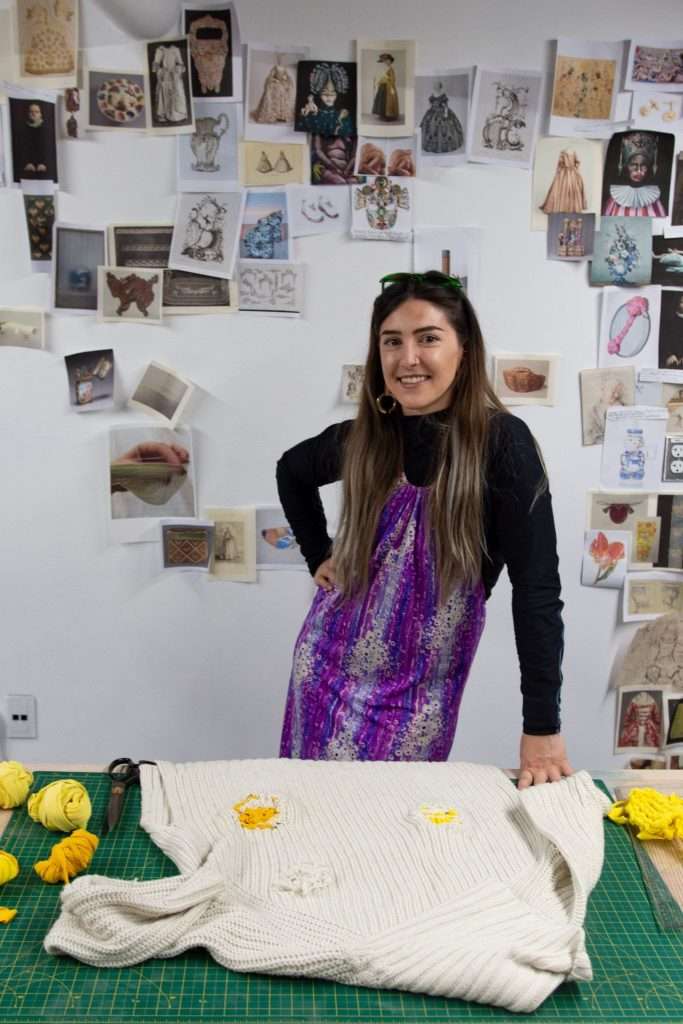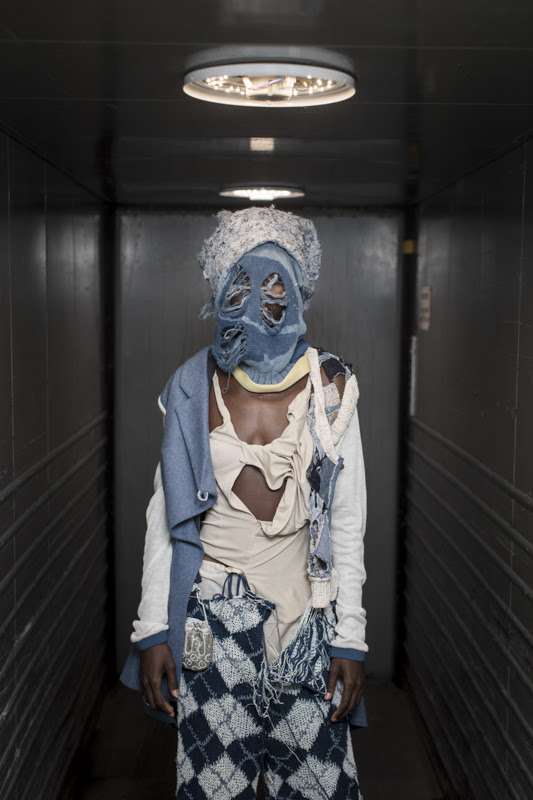Olivia Rubens, the Canadian Designer Crafting Sustainable Fashion Chaos
Ottawa Ontario, home to politicians, parliament buildings, and nicknamed “The City That Fun Forgot” by its more disgruntled residents, is not widely regarded as a fashion capital. Its middle manager demographics and staid energy give it the sensibility of a suburb masquerading as a big city. But dig deeper and pockets of cutting edge culture exist. The city happens to be home to Olivia Rubens, one of the most exciting young Canadian designers today.

Recycling Materials into New Designs
Rubens’ exuberant, maximalist creations look like the entire contents of a thrift store descended into beautiful chaos. She creates corsets out of recycled plastic chain mail and sweaters out of shredded denim. Sometimes her garments look like they’re beginning to decay. Her MA collection at the London College of Fashion, Duplicitous Lives, used tattered knit masks and colossal silhouettes to obscure any obvious markers of identity. She describes her own work as “kooky, playful and dark.”
Moving Home During the Pandemic
Rubens grew up in the nation’s capital, but found herself there entirely by accident when the pandemic hit. After finishing her Masters in Womenswear, she flew to Ottawa at the beginning of the pandemic (March 17th to be exact) and planned to stay two weeks — enough time to quarantine and secure her permanent UK visa. But as uncertainty set in and the future of the fashion industry was thrown into question, she realized she was better off staying put.
“I’ve taken the past year to really reflect more on my mental health and I realize that I’ve found more balance here. I was able to find a cheaper studio space. I’ve been spending time outdoors and cycling and hiking and camping, which means I can go back in the studio and be fully present and inspired,” she says.
Using Donated Materials
For most designers, working within the constraints of a global pandemic would be a challenge — but not for Rubens. The “people and planet positive knitwear” designer made it work, creating her signature pastiche designs using old clothing and bed sheets donated to her by friends and family on a sewing machine borrowed from a neighbour.

Sustainability is More Than a Buzzword
All her work is suffused with an ethical spirit of sustainability — and not in the marketing doublespeak way that greenwashes oil-based plastics as a sustainable alternative to leather or deems artificial fibres that leech microplastic into oceans as virtuous thanks to their origin as “recycled plastic bottles.” Rather, her decidedly freaky designs are the result of a process that carefully analyzes each step of the manufacturing process.
At the moment, she’s collaborating with Post Carbon Lab on a collection of photosynthesizing garments. “They’ll be alive and breathing and they turn green and you have to take care of them like plants,” she says.
Becoming a Fashion Designer
Fashion has always been a way out for Rubens. “I was a total weirdo in high school,” she tells me. A self-described outcast skater punk, she found her purpose in life after modeling in her high school’s fashion show in 11th grade. “It was kind of a joke because I’m like 5”3, but after that I realized I wanted to do this my whole life.”
In 2016, she participated in an Aveda competition called ‘In Your Jeans’ where she was tasked with creating a couture look out of upcycled denim. Rubens took apart 15 pairs of jeans and used the fibres to knit a sweater which clinched the winning title. Since then, she’s continued to receive accolades well beyond her years. In 2018 she was awarded the Suzanne Rogers Fellowship, a generous grant that covered tuition for her to study at the London College of Fashion. Last year she clinched the Responsible Fashion Award at the 2020 International Talent Support competition.

The Fashion Industry’s Waste Problem
“Once you know things you can’t unknow them,” she says of the fashion industry’s well-known waste problem. By nature, Rubens’ painstakingly-crafted designs are irreproducible on a large scale. Though many sustainable fashion advocates argue that the most sustainable choice of all is to not produce anything new, Rubens fights against that logic, maintaining that creation can be a form of radical optimism.
“I don’t think it’s responsible to stand by and say don’t buy anything,” she says. “That’s not how the world works. I think we can keep making [clothes] but we need to figure out better ways of it being circular, waste solutions, replacing fast fashion garments that decompose or even garments we grow ourselves.”
Rubens is living proof that big cities don’t have the monopoly on big ideas. With her idealism, innovative spirit, and can-do attitude, there’s no reason why this talented Canadian can’t change the world.

She is a maximalist, and has an extensive collection of both band tees and black ankle boots.






